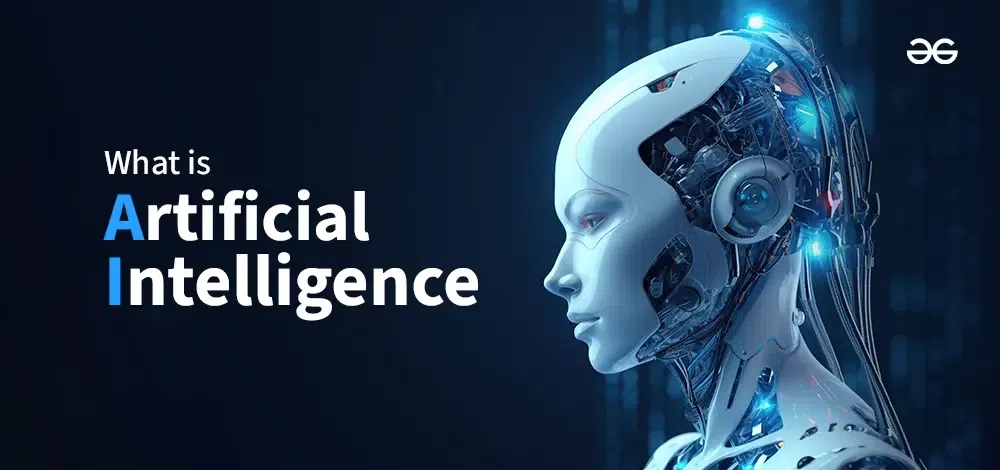Artificial Intelligence (AI) is reinventing education while making finding out more available however likewise sparking disputes on its impact.
While trainees hail AI tools like ChatGPT for improving their knowing experience, speakers are raising concerns about the growing reliance on AI, which they argue fosters laziness and undermines academic integrity, especially with numerous trainees not able to safeguard their projects or provided works.
Prof. Isaac Nwaogwugwu, a lecturer at the University of Lagos, in an interview with Nairametrics, expressed frustration over the growing dependence on AI-generated responses among trainees stating a recent experience he had.
RelatedStories

Avoid sharing personal info that can determine you with AI tools- Expert warns
Chinese AI app DeepSeek sparks international tech selloff, obstacles U.S. AI dominance
"I gave an assignment to my MBA trainees, and out of over 100 students, about 40% submitted the precise very same responses. These students did not even know each other, but they all used the exact same AI tool to generate their actions," he stated.
He noted that this trend is common amongst both undergraduate and postgraduate students but is particularly worrying in part-time and range learning programs.

"AI is a severe challenge when it concerns projects. Many trainees no longer believe critically-they just go on the internet, generate responses, and submit," he included.
Surprisingly, some lecturers are likewise implicated of over-relying on AI, setting a cycle where both teachers and students turn to AI for benefit rather than intellectual rigor.
This argument raises crucial questions about the role of AI in academic integrity and trainee development.
According to a UNESCO report, while ChatGPT reached 100 million month-to-month active users in January 2023, just one nation had released guidelines on generative AI since July 2023.
Since December 2024, ChatGPT had more than 300 million individuals using the AI chatbot each week and 1 billion messages sent every day worldwide.
Decline of academic rigor
University speakers are increasingly worried about students sending AI-generated tasks without truly understanding the material.
Dr. Felix Echekoba, a speaker at Nnamdi Azikiwe University, revealed his issues to Nairametrics about trainees progressively depending on ChatGPT, only to have problem with answering fundamental concerns when tested.
"Many trainees copy from ChatGPT and submit polished assignments, however when asked fundamental questions, they go blank. It's disappointing because education is about finding out, not just passing courses," he stated.
- Prof. Nwaogwugwu explained that the increasing variety of superior graduates can not be entirely attributed to AI but admitted that even high-performing students utilize these tools.
"A superior student is a top-notch trainee, AI or not, however that does not suggest they don't cheat. The advantages of AI might be peripheral, however it is making trainees reliant and less analytical," he said.
- Another lecturer, Dr. Ereke, from Ebonyi State University, raised a various concern that some speakers themselves are guilty of the same practice.
"It's not simply trainees utilizing AI slackly. Some speakers, out of their own laziness, produce lesson notes, course lays out, marking plans, and even exam questions with AI without evaluating them. Students in turn utilize AI to create answers. It's a cycle of laziness and it is eliminating genuine knowing," he regreted.
Students' viewpoints on use
Students, on the other hand, say AI has enhanced their learning experience by making scholastic materials more reasonable and accessible.
- Eniola Arowosafe, a 300-level Business Administration student at Unilag, shared how AI has actually substantially assisted her knowing by breaking down complex terms and supplying summaries of prolonged texts.
"AI helped me understand things more easily, specifically when dealing with complex subjects," she discussed.
However, she recalled an instance when she utilized AI to send her project, only for her speaker to immediately acknowledge that it was produced by ChatGPT and reject it. Eniola kept in mind that it was a good-bad result.
- Bryan Okwuba, oke.zone who just recently finished with a first-class degree in Pharmacy Technology from the University of Lagos, firmly believes that his academic success wasn't due to any AI tool. He associates his exceptional grades to actively appealing by asking questions and concentrating on locations that lecturers stress in class, as they are typically reflected in examination questions.
"It's all about existing, taking note, and using the wealth of understanding shared by my associates," he said,
- Tunde Awoshita, a final-year marketing student at UNIZIK, confesses to periodically copying directly from ChatGPT when facing multiple due dates.
"To be truthful, there are times I copy directly from ChatGPT when I have numerous due dates, and I understand I'm guilty of that, the majority of times the speakers don't get to go through them, however AI has actually likewise helped me discover faster."
Balancing AI's function in education
Experts believe the option lies in AI literacy; teaching students and lecturers how to utilize AI as a knowing help instead of a shortcut.
- Minister of Education, Dr. Tunji Alausa, highlighted the combination of AI into Nigeria's education system, worrying the value of a balanced approach that keeps human participation while utilizing AI to improve learning outcomes.
"As we browse the quickly developing landscape of Expert system (AI), it is vital that we prioritise human agency in education. We need to make sure that AI boosts, instead of replaces, teachers' vital role in shaping young minds," he said
Concerns over AI in Learning
Dorcas Akintade, a cybersecurity change expert, attended to growing issues relating to making use of expert system (AI) tools such as ChatGPT and their possible risks to the academic system.
- She acknowledged the benefits of AI, nevertheless, emphasized the requirement for caution in its usage.
- Akintade highlighted the increasing resistance among teachers and schools toward incorporating AI tools in discovering environments. She determined 2 primary reasons why AI tools are dissuaded in educational settings: security dangers and plagiarism. She discussed that AI tools like ChatGPT are trained to respond based upon user interactions, photorum.eclat-mauve.fr which may not align with the expectations of educators.
"It is not looking at it as a tutor," Akintade said, discussing that AI doesn't deal with specific mentor techniques.

Plagiarism is another issue, as AI pulls from existing data, typically without proper attribution
"A great deal of individuals require to understand, like I said, this is information that has actually been trained on. It is not just bringing things out from the sky. It's bringing information that some other people are fed into it, which in essence means that is another person's paperwork," she warned.
- Additionally, Akintade highlighted an early problem in AI advancement called "hallucination," where AI tools would produce information that was not factual.
"Hallucination meant that it was bringing out info from the air. If ChatGPT might not get that info from you, it was going to make one up," she explained.
She recommended "grounding" AI by offering it with specific information to avoid such mistakes.
Navigating AI in Education
Akintade argued that prohibiting AI tools outright is not the service, particularly when AI provides an opportunity to leapfrog traditional educational approaches.
.jpg)
- She believes that regularly enhancing crucial information helps people remember and avoid making errors when faced with difficulties.
"Immersion brings conversion. When you inform people the very same thing over and over again, when they will make the mistakes, then they'll remember."

She likewise empasized the need for clear policies and treatments within schools, noting that numerous schools ought to resolve individuals and process elements of this usage.
- Prof. Nwaogwugwu has resorted to in-class projects and tests to counter AI-driven academic dishonesty.
"Now, I mainly utilize projects to make sure trainees offer initial work." However, he acknowledged that managing large classes makes this method challenging.
"If you set complicated concerns, trainees won't have the ability to utilize AI to get direct answers," he explained.
He stressed the requirement for universities to train speakers on crafting examination concerns that AI can not easily fix while acknowledging that some speakers battle to counter AI abuse due to an absence of technological awareness. "Some lecturers are analogue," he stated.
- Nigeria released a draft National AI Strategy in August 2024, concentrating on ethical AI advancement with fairness, transparency, accountability, and privacy at its core.
- UNESCO in a report requires the guideline of AI in education, advising institutions to examine algorithms, information, and outputs of generative AI tools to ensure they fulfill ethical requirements, safeguard user data, and filter improper content.
- It stresses the need to assess the long-term impact of AI on critical abilities like believing and annunciogratis.net creativity while creating policies that line up with ethical structures. Additionally, UNESCO recommends executing age constraints for GenAI use to protect younger students and secure susceptible groups.
- For governments, it recommended adopting a coordinated nationwide method to controling GenAI, consisting of establishing oversight bodies and aligning guidelines with existing information defense and privacy laws. It stresses assessing AI threats, imposing more stringent guidelines for high-risk applications, and ensuring nationwide data ownership.








